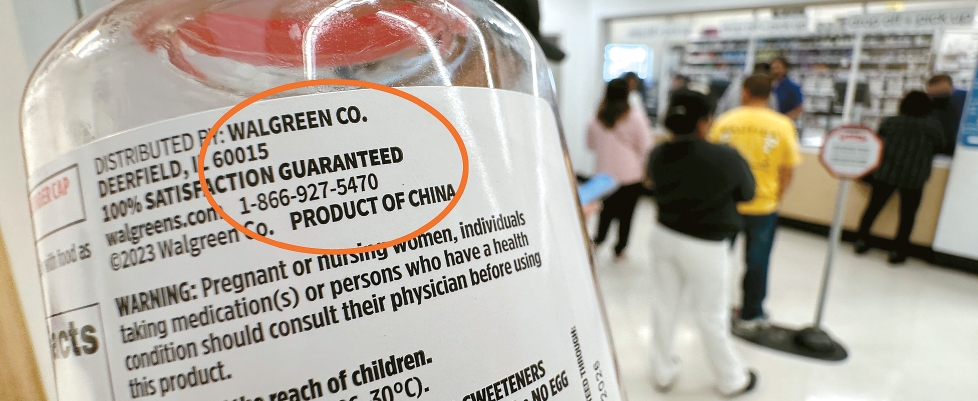The Trump Tariff policy is shaking the pharmaceutical market, with drug prices projected to rise by 15–20% if tariffs are fully imposed.

The pharmaceutical industry, which depends heavily on imported raw materials and finished drugs, has warned that if tariffs continue long-term, price hikes will be unavoidable. This would increase the financial burden on seniors and patients who rely most on medications.
Trump Tariff Impact on Korean American Pharmacies
Korean-made over-the-counter drugs, widely used by Korean American consumers, are already showing early signs of price increases. This development appears to contradict President Donald Trump’s executive order aimed at lowering drug prices for Americans.
According to USA Today, the Trump administration’s plan to impose tariffs on imported medicines could trigger not only price hikes but also potential shortages.
In early April, the administration applied a universal 10% tariff on most imports, initially exempting pharmaceuticals. The pharmaceutical industry briefly welcomed the exemption. However, on May 8, the administration announced plans to extend tariffs to imported drugs, setting off alarm across the industry.
Heavy Reliance on Imported Generics
Industry concerns stem from the fact that only a small portion of drugs are produced domestically. Generic drugs—copies of brand-name drugs made after patents expire—are especially reliant on imports.
BBC reported that 9 out of 10 prescription drugs in the U.S. are imported generics. Research by Professor Mariana S. Calle of Johns Hopkins University found that only 14% of generics are made domestically, while 86% are imported.
Although generics account for 90% of all prescriptions, they make up just 13.1% of total pharmaceutical spending because of their lower prices.
India and China Under Tariff Pressure
India and China are the main suppliers of generic drugs to the U.S. As the Trump administration emphasizes retaliatory tariffs on these countries, concerns about rising drug costs have intensified.
Experts warned that if tariffs on India and China increase and pharmaceutical exemptions are removed, drug prices could spike sharply.
In early June, ING Research projected that a 25% tariff on imported medicines would lead consumers to pay 15–20% more for their prescriptions.
Korean American Pharmacies Watch Closely
Korean American pharmacies are closely monitoring the situation. Some reported that 1 or 2 out of every 10 popular Korean-made over-the-counter drugs have already seen slight price increases. However, because many pharmacies are still selling from pre-tariff inventory, most consumers have yet to feel the impact.
Martin Kim, president of the California Korean American Pharmacists Association, said, “Most generics are imported from India, China, and Korea. The key issue will be how much of the tariff cost insurers decide to pass on to patients if pharmaceutical tariffs are implemented.”
BY HYOUNGJAE KIM [kim.ian@koreadaily.com]



